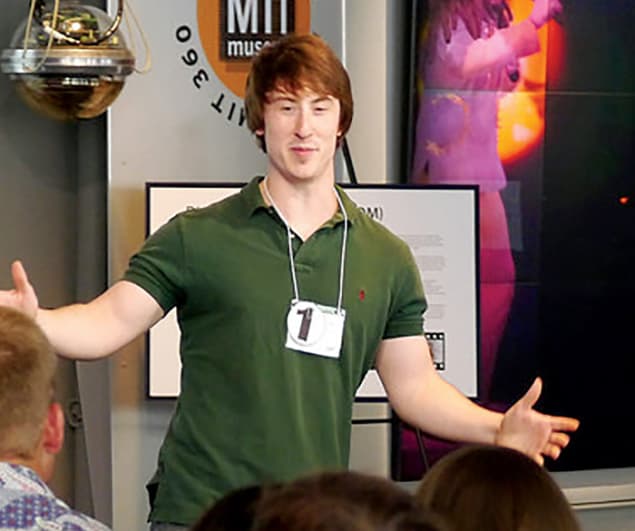The future for US science lies with today’s generation of early-career researchers. Physics World talks to delegates at ComSciCon 2017 – a national workshop on science communication – about the issues they face and how to improve the public face of science

Reggie Bain is on the verge of completing a PhD in theoretical physics at Duke University and is about to begin a teaching position at the University of Houston
Most people come into graduate school with the mentality that they’re going to stay in academia. There is a core of people where that’s what they want to do, their mind is set and then if they don’t end up in academia it was because of forces beyond their control. But I would say that there seems to be a growing sentiment where people want to learn more about physics but aren’t necessarily married to the idea of pursing a research career for the rest of their lives.
Chani Nava is a PhD student in astrophysics at Harvard University
I think that there is this tendency to see scientists as an elite group of sorts. And I think there’s an inclination to see us as being hard to communicate with, maybe socially cold or awkward. I think that’s fair in certain aspects and unfair in others. I believe that the scientific community as a whole could certainly make more of an effort to communicate and have a relationship with the general public.
Will Chen recently completed a Master’s degree in quantitative ecology at the University of Washington
At the moment we’re sort of in this period of uncertainty where science and scientific thinking is being challenged. Given our political climate, we’re in an era where science is not necessarily taken as something that can be believed, or even something that can be trusted. You have people like Neil deGrasse Tyson who say that science is true whether or not you believe in it. I think there’s some thought that needs to go into how we actually portray science. It’s clashing with people’s personal beliefs and I don’t know if that’s the right message.
Grayson Doucette is a PhD student in materials science at Pennsylvania State University
I think that scientists have a responsibility to ensure that their science gets to the public. It’s all well and good making discoveries and making breakthroughs. But if we don’t take the next step and actually make sure we get it to those who can take it to applications, or to the general public to be aware of what’s going on behind our lab doors, then I think we’ve not done justice to our jobs.
Khady Sall is a PhD student in molecular biology at Oregon State University, originally from Senegal
I’ve learned a lot from people here. Before, I was learning in French, in France, and then I came to the US. It’s a more diverse country in terms of nationalities. I met a lot of people from different countries and I feel like that experience shaped me as well. It made me more open and also more aware of what’s going on in the world, and I gained a different perspective from people who are actually from that country.
Michael Graw is a PhD student studying oceanography at Oregon State University
The oceanography field as a whole is really enthusiastic about early-career researchers but there definitely are challenges. Once you transition away from being a student it gets increasingly hard and you’re sort of dropped into competition with researchers who have been in the field for 20, 30 years and are much bigger names. There’s that air of moving very quickly from a somewhat sheltered situation to really being on your own to sink or swim. Bad oceanography joke!
Each day this week, we will be publishing a couple of new video interviews from delegates at ComSciCon 2017, including all the above. You can watch the first two films today.


